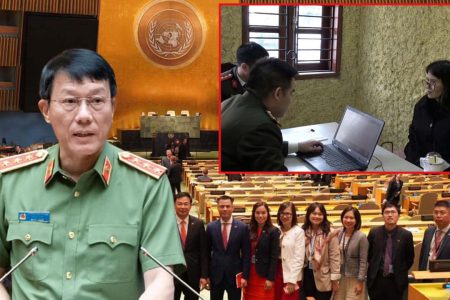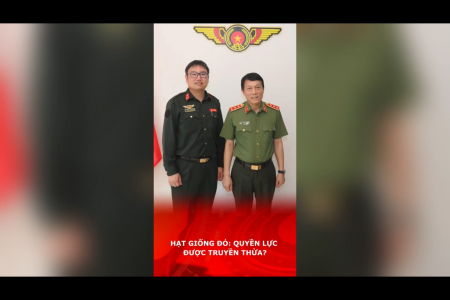
Myanmar’s internal conflict, along with the recent siege of China by Chinese ships, are reminiscent of ASEAN’s lackluster role in regional affairs.
For many years, ASEAN hopes to sign a Code of Conduct (COC) in the East Sea (South China Sea) together with China. The COC is expected as a tool to prevent potential conflicts in the South China Sea. However, there are signs that China does not really want to sign this document, or at least, China only signs it after it occupies more other entities, creating something in the favor of Beijing.
Malaysia, Vietnam, the Philippines and Brunei are all parties to sovereignty disputes with China’s so-called „9-dashed line claim.“ Although there is no sovereignty dispute, Indonesia is also involved by the region. Their Natuna Sea was also „accepted“ by China on the „9-dash line.“ Indonesia recently had to confront with the illegal intrusion of Chinese fishing vessels into this Natuna waters.
Over the years, Southeast Asian disputed countries in the South China Sea have faced criticism for their approach to advance respective cases.
Many analysts believe that internal conflict between disputed Southeast Asian countries undermines negotiations with Beijing. Currently, 4 ASEAN countries share overlapping claims in the South China Sea region. The Whitsun Reef incident was not only the centerpiece of the dispute between the Philippines and China, but the reef was also an entity in the overlapping claims between the Philippines and Vietnam. The Philippine government’s statement confirmed that Whitsun Reef belongs to the exclusive economic zone of the Philippines, but the Vietnamese government confirmed that the reef belongs to Union Bank territorial sea, so it is located in waters under the sovereignty of the Vietnam. It is the above disputes among ASEAN countries that have led to what experts call „internal disagreement“ between countries, thus redirecting efforts and resources on disputes between ASEAN countries such as the conflict over illegal fishing, therefore, undermines ASEAN’s role in its negotiations with China.
However, recent cooperation agreements on oil and gas exploration and maritime security in the South China Sea show that ASEAN’s neighbors can resolve disagreements.
Malaysian media quoted General Director Mohd Zubil Mat Som of Malaysia Maritime Enforcement on April 5, saying that a memorandum of understanding between Kuala Lumpur and Hanoi will be signed in 2021 to enhance cooperation in maritime security. The agreement shows that relations have become warmer after a rift in August 2020 when a Vietnamese fisherman was shot dead after Malaysia’s coast guard tried to inspect two Vietnamese ships allegedly fishing illegally in Malaysian waters. At that time, Malaysian officials said that the crew members on the two ships had acted aggressively and bombed the Malaysian side with diesel bombs.
Mr. Mohd Zubil said that the new agreement between the two countries‘ maritime authorities will „solve the problem of Vietnamese fishermen’s encroachment, especially in the South China Sea.“
Some regional observers believe that the plans for the maritime agreement between Malaysia and Vietnam provide a positive signal that small countries are ready to leave petty disagreements to confront assertive actions of the Chinese military in this waters.
Analysts also noted that the enhanced cooperation between Malaysia and Vietnam and a separate resolution between Malaysia and Brunei to jointly develop oil and gas fields on the two countries‘ maritime borders is proof that Southeast Asian countries are making serious efforts to close the differences.
Mr. Murray Hiebert of consulting firm BowerGroupAsia and a veteran observer in Southeast Asia said that this development is very welcome, although Malaysia and Vietnam still have „other issues“ that need to be resolved in the South China Sea, including overlapping sovereignty claims.
In 2019, Malaysia submitted a submission to the United Nations to expand the continental shelf in the northern part of its waters, which includes waters that Vietnam also claims. In 2009, Vietnam and Malaysia made a joint submission to the southern part of the South China Sea. However, Mr. Hiebert said that the upcoming agreement is a good start: “It would be very helpful in the agreements with China if the claimants in Southeast Asia can settle their internal sovereignty disputes. as a model of how these countries can deal with overlapping claims with Beijing.“
Expert Hiebert, who is also a senior associate of the Center for Strategic and International Studies (CSIS) in Washington, said that Malaysia’s „silent foreign policy“ when Chinese coast patrol boats harass Vietnamese ships in recent years have not been of help to small countries. “In 2019 and 2020, Chinese coast guard and militia ships have harassed oil and gas exploration activities in the exclusive economic zone off Vietnam and Malaysia. Vietnam strongly condemned China’s actions, while Malaysia was surprisingly silent. If both countries can find a common ground in criticizing Beijing’s assertive behavior, the result may be more effective.”
Ivy Kwek, Director of Research for Social Progress, noted that there have been instances of maritime cooperation among Southeast Asian countries, such as the Tripartite Cooperation Agreement between Indonesia, Malaysia and the Philippines – to increase security in the Sulu Sea – and the Malacca Strait Patrol jointly carried out by Malaysia, Indonesia, Singapore and Thailand.
Kwek, a former political assistant at Malaysia’s Ministry of Defense, said the mechanisms could be further strengthened to address issues such as illegal fishing, the main cause of conflict between the disputed parties in Southeast Asia.
According to Ms. Kwek, some elements of disputes between Southeast Asian countries can also be resolved internally – without China’s participation – using mechanisms such as the United Nations Convention on the Law of the Sea (UNCLOS). However, the important issue is that Beijing is seeking to divide ASEAN countries in the South China Sea issue by prioritizing bilateral dispute settlement with each claimant in Southeast Asia.
Oh Ei Sun, a senior fellow at the Singapore Institute of International Affairs, said „some“ claimant states hope to see a more „bloc“ stance between them and China. However, he noted: „It is very difficult to build such a united front because China prefers to settle bilaterally with each side and will only settle the disputed issues individually.“
However, the „merger agreement“ of Brunei and Malaysia earlier this April on joint development of the Gumusut-Kakap and Geronggong-Jagus East mines shows that the smaller neighbors can fully resolve the differences. The agreement was formalized during Malaysia’s Prime Minister Muhyiddin Yassin’s visit to Brunei. The two countries later said the agreement created „a positive impetus for oil and gas cooperation between the two countries.“ Sun said Brunei and Malaysia can use this type of cooperation to resolve other differences: „If such negotiations cannot reach consensus, the two countries can also bring the disputes to international arbitration for arbitration.”
Recently, Antonio Carpio – Former judge of the Supreme Court of the Philippines, who is also an important figure for the Philippines’ affairs against China at the Arbitration Court according to Annex VII of UNCLOS calls for the three countries Malaysia, Vietnam and the Philippines have can resolve disagreements in sovereignty claims in the South China Sea before the International Court of Justice. Mr. Carpio also noted that China, through the Whitsun Reef incident, is implementing the salami slicing strategy, gradually changing the status quo of the South China Sea in favor of China. “Therefore, we must resolve this issue, to put our strength against China without causing conflicts with neighboring Malaysia and Vietnam, because they also have territorial claims (in the Spratlys on the South China Sea), ”said Carpio.
Perhaps, this is the right time for ASEAN countries directly involved in the South China Sea dispute to sit together to find a suitable direction to deal with China.
Thoibao.de (Translated)


























